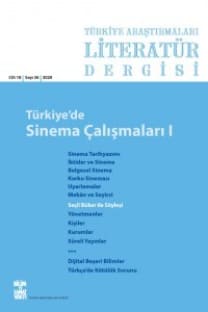Osmanlı Medrese Müfredatına Dair Çalışmalar: Nereden Nereye?
İslam medeniyetinde, başta siyasî otorite olmak üzere pek çok değişkeni dikkate almakla birlikte, daha çok ilim kamuoyunun (ulema) belirlediği bir müfredat anlayışından söz edilebilir. Aslında İslam medeniyetinde medreselerdeki müfredat büyük oranda siyaset ile ilimin, ferman ile fetvanın uzlaşmasına dayanmaktadır. Bu çerçevede İslam medeniyetinin doğal bir devamı olan Osmanlı döneminde de medreselerin devlet tarafından ana hatları belirlenen, süreç içerisinde de gözden geçirilen, gevşek bir müfredatının bulunduğu söylenebilir. Bu özellikleri haiz Osmanlı müfredat programlarının tahlili, her şeyden önce bu konuda bilgi veren eski ve yeni çalışmaların birlikte ele alınmasını zorunlu kılar: Telif eserlerden şerhlere, haşiyelere; otobiyografilerden seyahatnamelere; icazetnamelerden vakfiyelere; müfredat üzerine kaleme alınmış kaynakların incelenmesi gerekir. Ancak tüm bu çalışmalarda dikkat edilmesi gereken en önemli nokta, klasik çerçevenin kendi döneminin bilgi anlayışı içerisinde kalınarak idrak edilmesidir.
Anahtar Kelimeler:
Osmanlı medreseleri, medrese ders programları, müfredat
Studies on the Ottoman Medrese Curriculum
Although many variables, especially the political authorities, are to be taken into account, it should be accepted that the curricula of the medreses were determined by scholars (ulama) in the Islamic civilization. As a matter of fact the curricula were based on the proportional reconciliation between politics and knowledge, in other words edict (ferman) and judicial decree (fetwa). In this context, it can be said that in the Ottoman period, which was a natural continuity of Islamic civilization, there were loose curricula, and their main lines have been determined by the state and then with some revisions arranged in the medreses. To analyse the Ottoman medrese curricula that have these criteria, first of all we need to study all the old and new sources which give us information about them: Texts in various fields of study as well as their commentaries and glosses, autobiographical notes, travel accounts, medrese certifications, deeds of endowments (ewkaf) and so on. But for an accurate result, each piece of information obtained from these sources should be related to its restricted time and place.
Keywords:
Ottoman medreses, curriculums in Ottoman medreses, curriculum,
- ISSN: 1303-9369
- Başlangıç: 2003
- Yayıncı: Bilim ve Sanat Vakfı
Sayıdaki Diğer Makaleler
Osmanlılarda İlköğretimin Tarihi
Türkiye'de Öğretmen Yetiştiren Kurumlar Tarihi Literatürü
Cumhuriyet Dönemi Eğitim Tarihi
Osmanlı İmparatorluğu nda Modernleşme ve Eğitim
Hasan Âli Yücel: İcraatları ve Eserleriyle Bir Eğitim Bakanının Portresi
Klasik Osmanlı Eğitim Sisteminin İki Büyük Temsilcisi: Fatih ve Süleymaniye Medreseleri
Halk Eğitiminin Başarısı ve Başarısızlığı
Medrese ve Tekke Dışındaki Eğitim Müesseseleri Tarihi Literatürü
